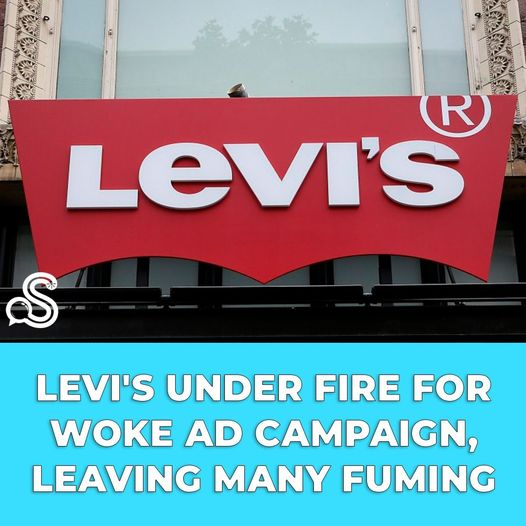Levi’s, once an American icon known for its classic denim, has recently ignited controversy with its latest advertising campaign. The brand has followed in the footsteps of Bud Light, raising eyebrows with a woke ad that features transgender individuals to promote its products.
In a world where political correctness seems to overshadow everything else, Levi’s decision to dive headfirst into the world of identity politics has left many of its loyal customers shaking their heads. The backlash against Bud Light’s Dylan Mulvaney ad should have been a clear indicator of what lay ahead, but Levi’s seemed determined to embrace a similar path.

This move coincided with Levi’s announcement in May 2023 that they were expanding their “gender-neutral” product line. CEO Chip Bergh proudly declared, “We actually have a gender-neutral line. It was a small collection. We know that some women buy some men’s products and some men buy women’s products; we’ve got the research and the data to show it. That’s great. We are building out slowly, it started with a small collection of gender-neutral or gender-fluid line, and there’s definitely consumer appetite for that. And we’re there for that.”
https://x.com/laralogan/status/1672841683174670336
Bergh’s statement came in response to a question from Axios’ Hope King during a conference. She asked, “Bud Light’s recent marketing stunt shows where the backlash can come from. How do you market products in a world where people are more aware of their gender identities?”
While Bergh tried to downplay any concerns about a Bud Light-like backlash, it’s important to remember that slow burns can lead to trouble for any company. As more people discover the ad and Levi’s commitment to identity politics, some may decide to take their business elsewhere.
Commenters on the video were quick to voice their confusion, particularly on how such commercials impact young people. One viewer said, “I feel bad for young people. I am confused watching this. I remember being 14 and trying to figure out the world. The cultural rules are constantly changing. God never does. He leads us on a good path that is never confusing. Only life giving.” Another commented, “I don’t even want to comment because what wants to come out is not nice. I’m noticing the intention here – not only to groom the younger ones, but to keep us in lower vibrations.”
Many have declared their loyalty to other brands, with comments like “And I’m done buying Levi’s!” and “My Wranglers are more comfortable and have lasted forever.” For those looking to support a company that manufactures its jeans in America, Origin Jeans was suggested as an alternative.
Some questioned the logic of such woke advertising if the goal is to maximize profits. One commenter pondered, “I always thought that marketing tried to capture the largest audience. Is ESG so powerful that profits are secondary? We are devolving,” while another asked, “Not sure why any company wants to advertise to a very tiny percent of the population?”
The reality is that Levi’s might not be primarily concerned with turning a profit through this ad campaign. Instead, they appear to be signaling ideological conformity to those who control financial investments and government policies. By showcasing bearded women and formerly female men in their ads, they secure the necessary financing and funding to avoid potential penalties from the government for outsourcing production.
For those who haven’t worn Levi’s in years, this recent move has likely reaffirmed their decision. Levi’s may have embraced wokeness, but for many, it’s a trend they won’t miss.

